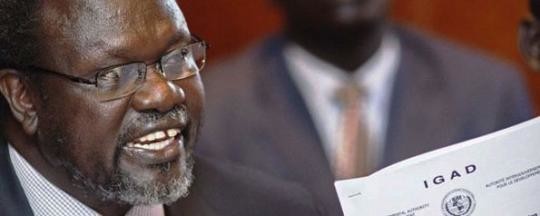The SPLM/A-in Opposition has resolved to send as many as 500 of its members as an advance team to Juba in the coming days in preparation for the reception of their leader Riek Machar who is due to return to take up his position as first vice president in accordance with the new peace agreement.
SPLM-IO deputy head of information and public relations Manawa Peter Gatkuoth told Radio Tamazuj in an interview yesterday that the group’s Liberation Council in its meeting which was concluded in Pagak area on Saturday approved the security arrangements agreement which has recently been signed by warring parties in order to implement the peace agreement.
He further said the meeting also approved to send an advance team of 500 armed opposition members to the capital Juba and to other states in order to prepare for the reception of the opposition leader Riek Machar.
“The Liberation Council in Pagak has passed the security arrangements and also agreed to send an advance team to Juba in preparation for the reception of the opposition leader in Juba, so about 500 cadres representing various categories like youths, women and political leaders will be sent,” he said.
Manawa pointed out that the delegation will be ready to go to the Juba after two weeks. He predicted that the formation of a transitional government will be in early January next year.
The Presidential Press Secretary Ateny Wek Ateny said in a previous statement to Radio Tamazuj that the opposition leader may return to Juba on 18 November in preparation for the formation of the transitional government after 26 November, according to the original timeframe of the signed peace agreement.
At recent talks in Addis Ababa, however, negotiators discussed the possibility of delaying the start date for the transitional period until December or January.




